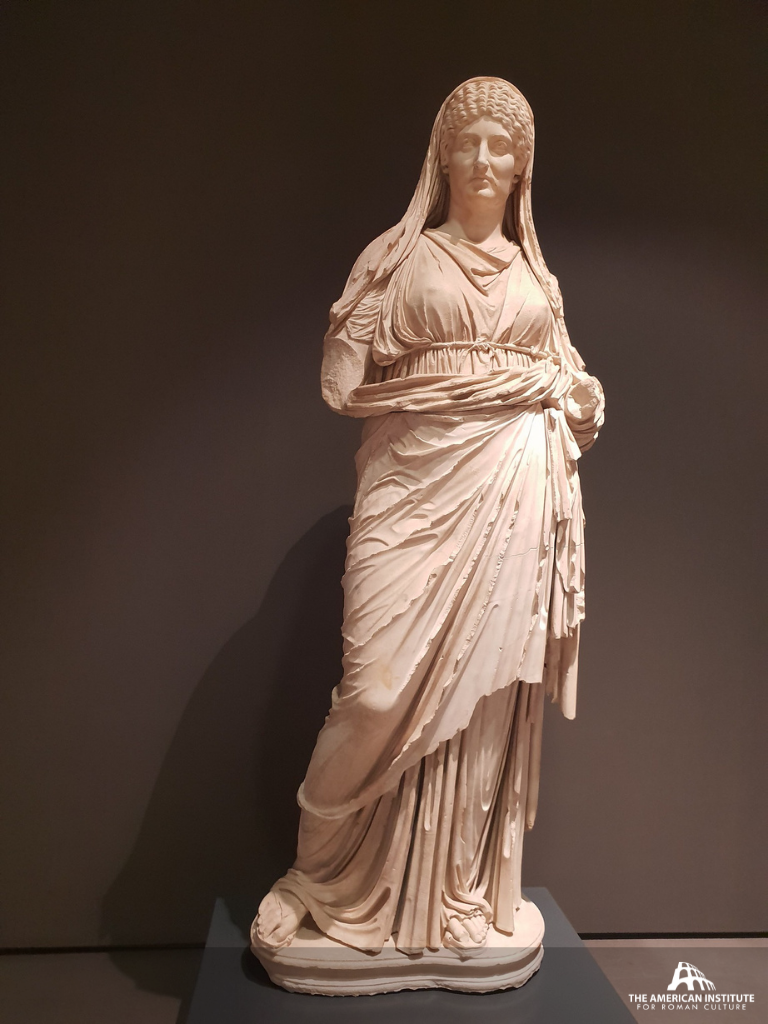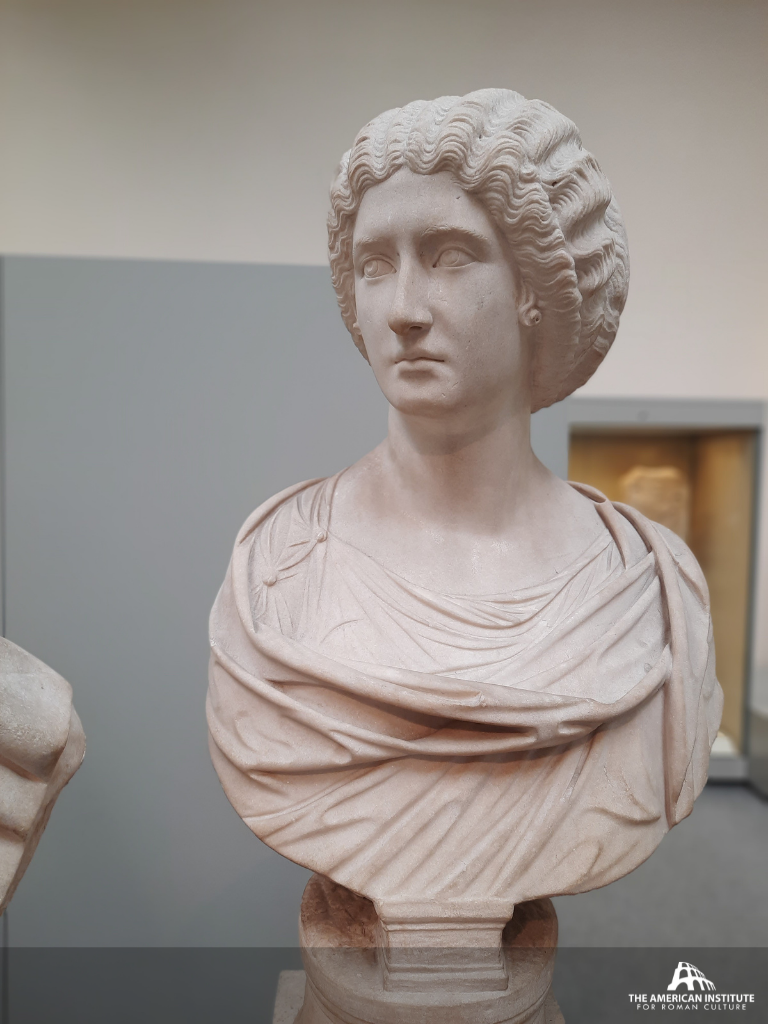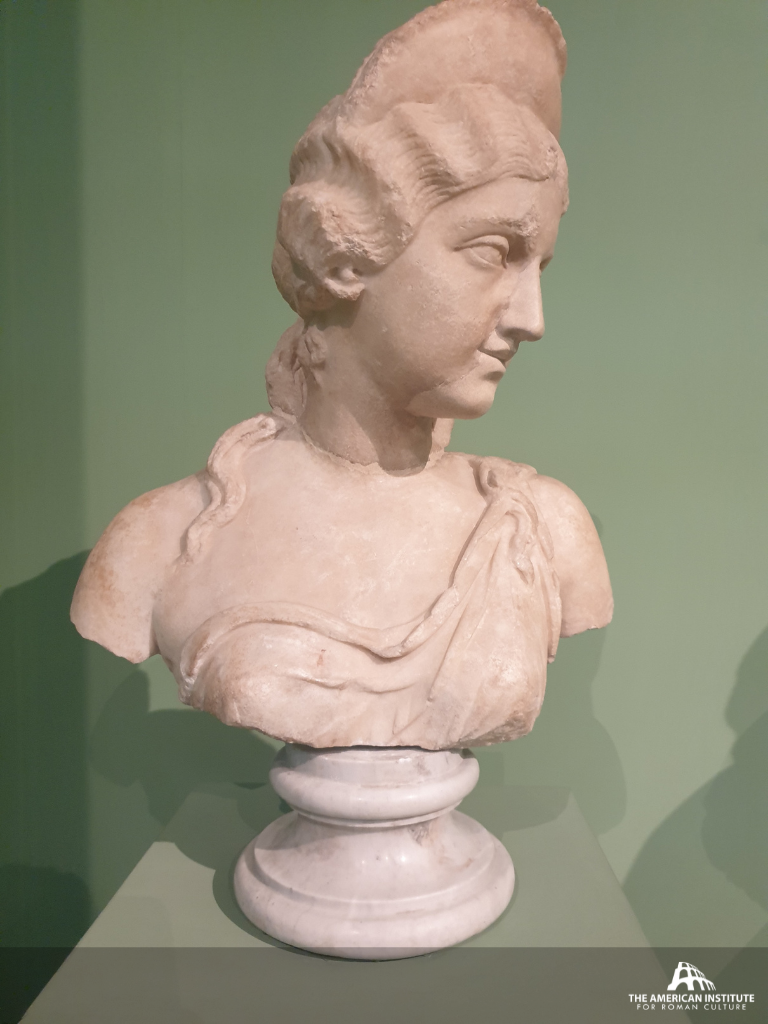Official Name: ANNIA AURELIA GALERIA LUCILLA AUGUSTA
Birthdate: March 7, 150 CE.
(Inscriptiones Graecae Ad Res Romanas Pertinentes I 1509)
Birthplace: Unknown.
Reign: Lucilla was the daughter of Marcus Aurelius, who ruled as emperor from 161-180 CE. She was also the wife of Lucius Verus, who ruled as co-emperor alongside her father from 161-169 CE.
(Historia Augusta, Life of Marcus Aurelius, 7.7)
Marriages:
Lucius Verus (164-169 CE)
(Historia Augusta, Life of Marcus Aurelius, 7.7)
Tiberius Claudius Pompeianus (169-182 CE)
(Historia Augusta, Life of Marcus Aurelius, 20.6)
Children:
Lucilla had three children with her first husband, Lucius Verus. After his death in 169 CE, she married a general named Tiberius Claudius Pompeianus. They had one son and remained married until Lucilla’s death in 182 CE.
Aurelia Lucilla (daughter by Lucius Verus)
Lucilla Plautia (daughter by Lucius Verus)
Lucius Verus (son by Lucius Verus)
Aurelius Pompeianus (son by Tiberius Claudius Pompeianus)
(Cassius Dio, Roman History, 73.4)
(Historia Augusta, Life of Caracalla, 3.8)
(RIC III Marcus Aurelius 764)
Death: Lucilla was executed by her brother, emperor Commodus, in 182 CE.
(Cassius Dio, Roman History, 73.4)
(Herodian, History of the Empire from the Death of Marcus, 1.8.8)

Statue of Lucilla, Palazzo Massimo, Rome, April 2017

Bust of Lucilla, British Museum, London, July 2021

Bust of Lucilla, Centrale Montemartini, Rome, February 2019
Born in 150 CE, Lucilla was the daughter of Marcus Aurelius and his wife Faustina the Younger. She was connected to three Roman emperors – her father, her brother Commodus, and her husband Lucius Verus. These relationships gave Lucilla significant power and influence, making her one of the most prominent women of the second century.
At the age of eleven, Lucilla was betrothed to Lucius Verus, her father’s co-emperor. The marriage took place three years later, in 164 CE, during Verus’ campaign against Parthia. Once married, Lucilla was granted the title Augusta and became co-empress alongside her mother. Though Lucilla and Lucius Verus spent much of their marriage apart, he was often away on military campaigns while she remained in Rome, they had three children together. Of these children only one, a daughter, survived to adulthood. Lucilla remained married to Lucius Verus until 169 CE, when he died while traveling to Rome after a military campaign along the Danube.
Following Lucius Verus’ death, Marcus Aurelius, arranged for Lucilla to marry Tiberius Claudius Pompeianus, a Syrian-Roman general and former consul. Pompeianus was significantly older than Lucilla and considered by many to be beneath her station. Despite this, their marriage allowed Marcus Aurelius to strengthen his position and continue his campaigns on the northern frontier. Lucilla and Pompeianus had one son and remained married until her death in 182 CE.
When Marcus Aurelius died in 180 CE, Lucilla’s younger brother Commodus succeeded him as emperor. Commodus quickly earned a reputation for erratic and tyrannical behavior, alienating much of the Roman elite. By 182 CE, a conspiracy to assassinate him had formed, with Lucilla allegedly playing a leading role. The exact reasons for her involvement remain unclear. Herodian and Cassius Dio suggest that personal grievances motivated her, such as jealousy towards the new empress and wife of Commodus, Bruttia Crispina. In contrast, the Historia Augusta proposes a political motive, implying that her actions were inspired by her brother’s erratic and despotic behavior.
Whatever her motivations, the plot failed. In response, Commodus exiled Lucilla to the island of Capri and later ordered her execution. She died in 182 CE, ending a life marked by privilege, political ambition, and ultimately, tragedy.
Bibliography
- Balsdon, J.P.V.D. (1983). “Roman Women: Their History and Habits.” The Bodley Head.
- Boatwright, Mary. (2021). “Imperial Women of Rome: Power, Gender, Context.” Oxford University Press.
- Freisenbruch, Annelise. (2010) “The First Ladies of Rome: The Women Behind the Caesars.” Jonathan Cape.
- Hekster, Oliver. (2021). “Commodus: An Emperor at a Crossroads.” Brill.
150
(Historia Augusta, Life of Marcus Aurelius, 7)
(Herodian, History of the Empire from the Death of Marcus, 1.8.1)IC III Marcus Aurelius 676)
164
(Historia Augusta, Life of Marcus Aurelius, 7.7)
(Historia Augusta, Life of Lucius Verus, 7)
182
(Cassius Dio, Roman History, 73.4)
(Herodian, History of the Empire from the Death of Marcus, 1.8.4-8)
This content is brought to you by The American Institute for Roman Culture, a 501(C)3 US Non-Profit Organization.
Please support our mission to aid learning and understanding of ancient Rome through free-to-access content by donating today.
Cite This Page
Cite this page as: Darius Arya, The American Institute for Roman Culture, “Lucilla” Ancient Rome Live. Last modified 1/12/2025. https://ancientromelive.org/lucilla/
License
Created by The American Institute of Roman Culture, published on 3/12/2022 under the following license: Creative Commons: Attribution-NonCommercial-ShareAlike. This license lets others remix, tweak, and build upon this content non-commercially, as long as they credit the author and license their new creations under the identical terms. Please note that content linked from this page may have different licensing terms.


